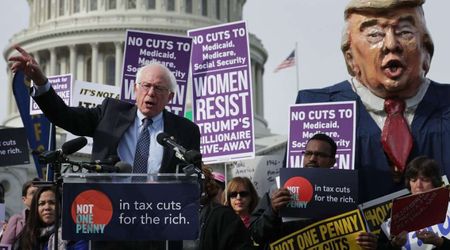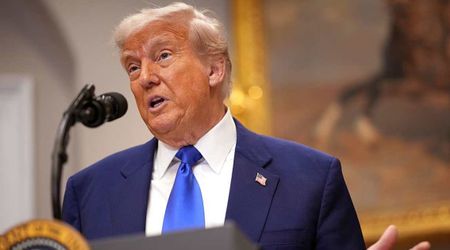Here's the Social Media Giant Which is Making Major Changes to the Fee it Charges From Sellers

Social media has become an essential part of the overall marketing strategy for every business from smaller firms to local stores and major brands. Among online platforms, TikTok has managed to outshine Facebook and Instagram with its user interface that simplifies and democratizes content creation. Having established itself as the go to place for influencers to monetize their content, TikTok has now made changes to the amount of money it charges from sellers who use its e-commerce features in the United States. This news comes shortly after TikTok announced that users on its platform had spent over $10 billion. The changes involve TikTok Shop, the platform's e-commerce section, increasing its fees for merchants from 2% to 8% per transaction.
TikTok's incremental fee hikes
The details were reported by The Information, a media outlet, which mentioned that TikTok had already informed sellers about these plans. Firstly, there will be a jump from the current 2% to 5% at the beginning of April. Subsequently, the fees will see a final increase to 8% on July 1.
It's important to note that these changes won't affect all product categories in the same way, as expensive products will face lower fees compared to other categories. This implies that TikTok is considering the nature and value of the products being sold when determining the fees.

In addition to the fee adjustments, TikTok is also planning to reduce the subsidies it offers to merchants. Subsidies are financial support or incentives provided to encourage certain activities. In this case, TikTok had been offering subsidies to merchants to support their e-commerce efforts. But these subsidies will now be limited to the highest-selling products, as part of TikTok's broader efforts to cut down on funding for its e-commerce division.
TikTok introduced its Shop feature to the United States in September 2023. However, this launch was delayed as the platform had previously tried out the feature in the United Kingdom, where it didn't perform well due to low consumer demand.
The move to increase fees and reduce subsidies is significant for both TikTok and the sellers using its platform. For TikTok, it can mean increased revenue from the e-commerce section, but for sellers, especially those offering lower-priced products, the higher fees may hit profit margins.

Key features that have been introduced:
In-Feed Video Shopping: Users can now seamlessly shop while scrolling through their feeds, making the shopping experience more integrated into their regular content consumption.
Product Showcases: Brands and merchants can showcase their products in a visually appealing way, allowing users to explore and discover items they might be interested in purchasing.
Shop Tab and Marketplace: The introduction of a dedicated shop tab and marketplace simplifies the navigation for users looking to explore and buy products within the platform.
Affiliate Programme: This feature enables users to become affiliates, earning rewards or commissions by promoting and selling products through their content. It's a win-win, benefiting both content creators and brands.
Shop Ads: Brands now have the opportunity to promote their products through shop ads, reaching a wider audience and potentially driving more sales.

It's worth noting that this kind of adjustment in fees and subsidies is not uncommon in the business world. Companies often reassess their pricing strategies to align with their financial goals and market conditions. For users of TikTok's e-commerce features, staying informed about these changes and understanding how they might impact their businesses is crucial for making informed decisions in the evolving landscape of online selling.
As TikTok continues to evolve, these changes aim to strike a balance between supporting sellers and ensuring TikTok's sustained growth in the competitive world of social media and online commerce.





















